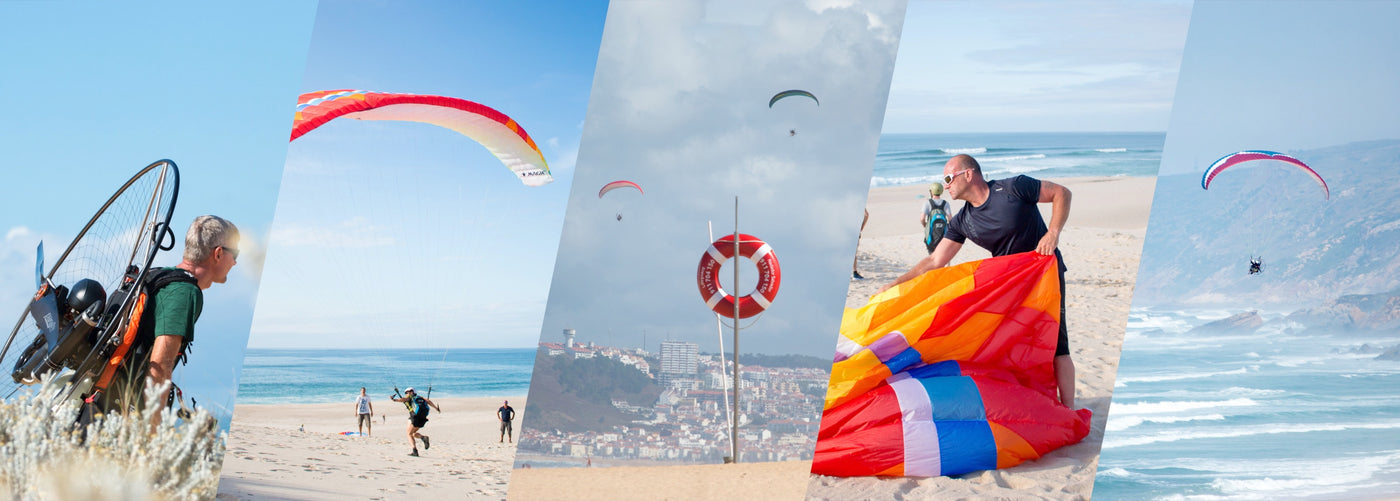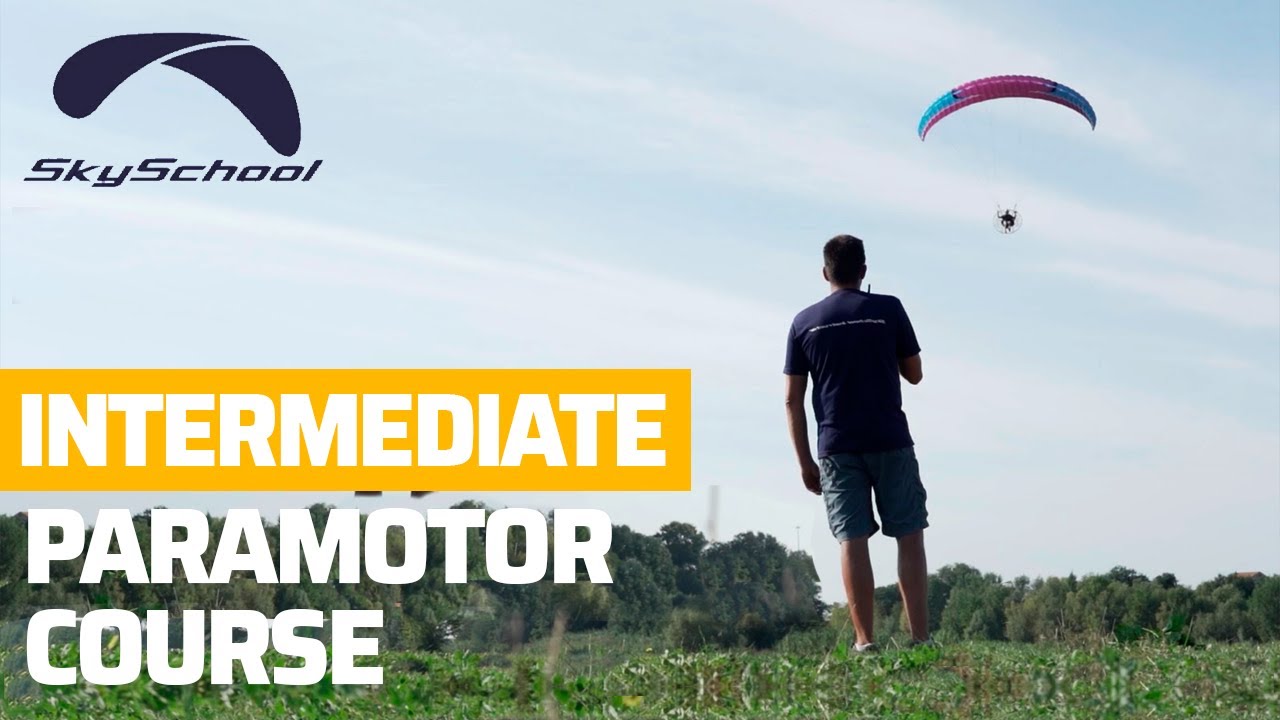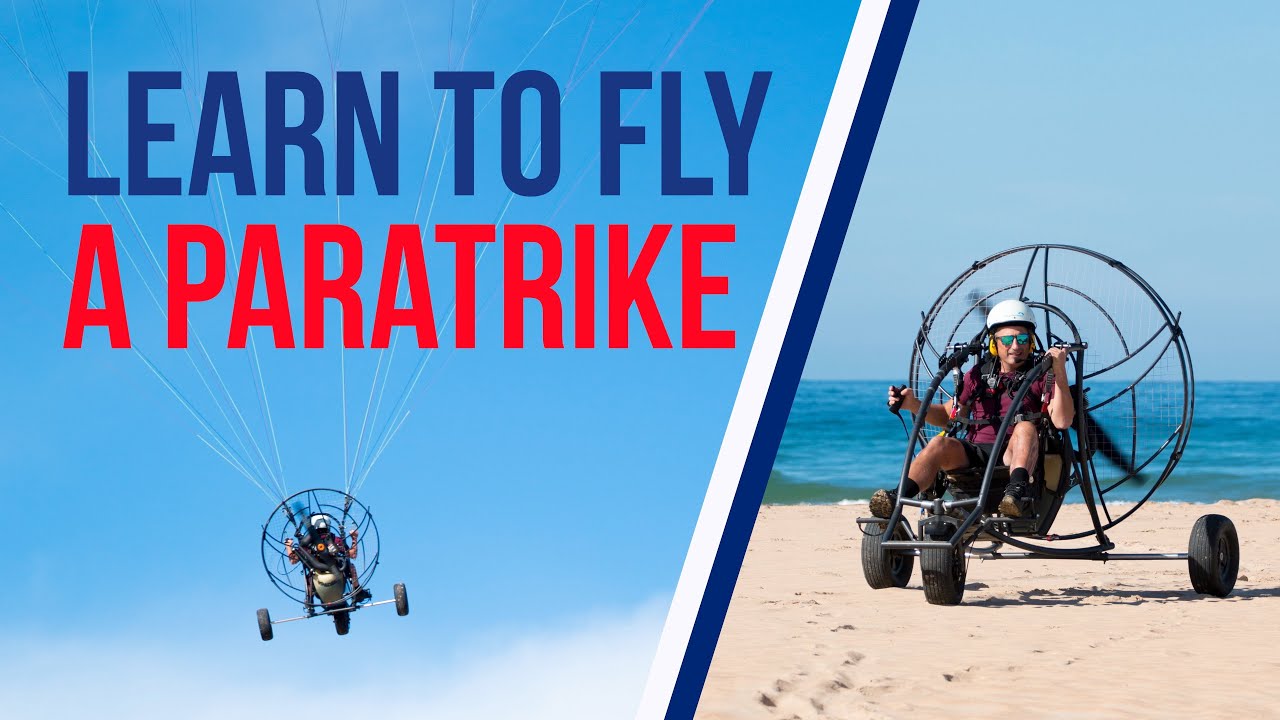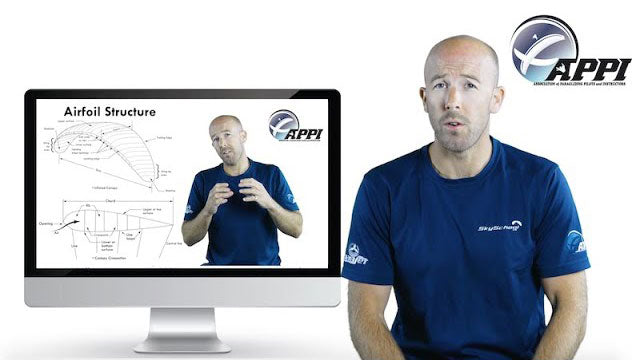Courses
We run Paramotoring courses in the UK and Spain. To view our 2026 dates download this PDF. To discover more about the various courses we run see below or read this Roadmap, which explains how to go from 1st Solo Flight to Master Instructor. To make an enquiry or a booking contact us.
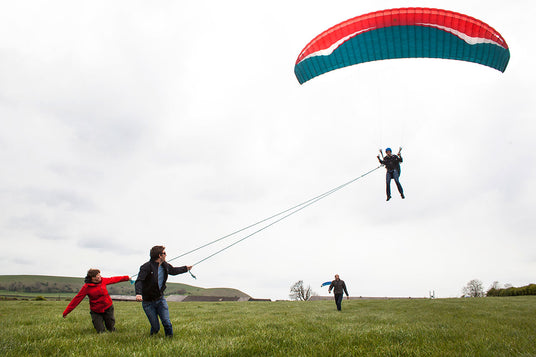
Taster Course
The 2 day Taster course is designed to introduce people to Paramotoring and is a great gift to give to almost anyone. The voucher can also be used to upgrade to our longer 6 day Beginner Paramotor course.
Training consists of learning how to control the Paraglider and Paramotor on the ground, as well as some basic theory. If the weather is suitable students have the opportunity to get airborne with just the wing by being towed up to 5m above the ground. It is not designed to get people flying a Paramotor solo!
The Taster Course costs £350 and takes place at Hinton Airfield in the UK over weekends in July and August.
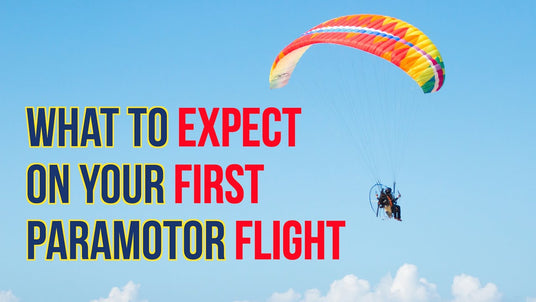
Beginner Paramotor Course
SkySchool offers premier paramotor training UK courses at Hinton Airfield, designed for beginners and aspiring APPI PPG pilots. The 6 day Beginner Paramotor course is designed for complete beginners or Paraglider Pilots with less than 20 hours experience. The goal is get people flying a Paramotor solo at least once.
Paramotor training consists of ground handling, motor usage training, basic theory and usually culminates in at least one solo flight. At the end students can progress on to the Intermediate Paramotor course.
The prices for the Beginner Course vary depending upon the location. In the UK students can either sit a consecutive 6 day course from Saturday to Thursday for £1,095 or a flexible 6 day course over weekends for £1,245. In the 6 day course costs £1,545 with Spain accommodation and £1,245 without.
Intermediate Paramotor Course
The 6-day Intermediate Paramotor course is designed for students have flown a Paramotor solo at least once or Paraglider pilots with more than 20 hours experience. The goal is get people qualified as an APPI PPG Pilot.
The APPI PPG Intermediate course syllabus consists of multiple flights that involve low level flying, precision landings, and cross-country tasks. The course also covers further theory on meteorology, air law, navigation, and general information, at the end of which is the Pilot Exam.
Students need to complete a minimum of 15 solo flights, log at least 3 hours and pass the exam to attain the APPI PPG Pilot License. Once qualified, pilots can fly without an instructor and take out insurance with AXA.
The course fees for the Intermediate course vary depending upon the location. In Spain the 6-day Intermediate course costs £1,545 with accommodation and £1,245 without accommodation. In the UK the Intermediate course is run on an Ad Hoc day-by-day basis and costs £180 a day.
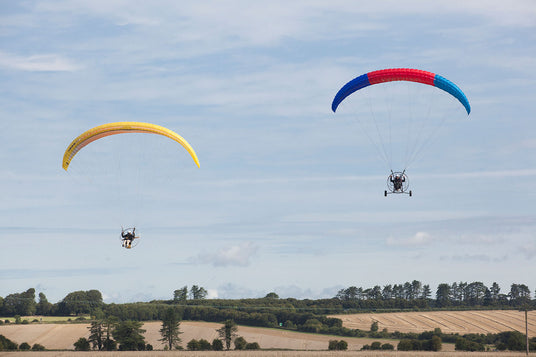
Paramotor Pilot Course
The 12 day Paramotor Pilot course is a combination of the Beginner and Intermediate courses, as described above. It is designed for complete beginners or Paraglider pilots with less than 20 hours experience. The goal is get people qualified as an APPI PPG Pilot.
Students need to complete a minimum of 15 solo flights, log at least 3 hours and pass the Pilot Exam to attain the Pilot License. Once qualified, pilots can fly without an instructor and take out insurance with AXA.
The prices for the Paramotor Pilot Course vary depending upon location. They take place over 2 weeks in Spain. It is possible to split the course between the UK and Europe. It is also possible to sit the Beginner Course intensively and then the Intermediate Course on an Ad Hoc basis in the UK.
The course fees for the 12 day Paramotor Pilot course in Spain are £2,595 with accommodation and £1,995 without accommodation. The course fees for the 12 day Paramotor Pilot course split between the UK and Spain are £2,295 with accommodation and £1,995 without accommodation.
ParaTrike Courses
ParaTrike Training is only available to those who have their own equipment. Training is bespoke and can take place in the UK or Spain, as long as the equipment is provided by the student. We sell Fly Products ParaTrikes, which we believe are the best trikes on the market. To discuss this in more detail please contact us.
The training course follows the APPI ParaTrike syllabus. Students need to complete a minimum of 15 solo flights, log at least 3 hours and pass the Pilot Exam to attain the APPI ParaTrike Pilot license. Once qualified, pilots can fly without an instructor and take out insurance with AXA.
APPI Online Theory Courses
SkySchool is associated with APPI Power and follows the APPI PPG and APPI ParaTrike training syllabuses, the most modern and internationally recognised training syllabuses in the world.
We also have our own Online Paramotor Theory course that includes videos of the lectures, short quizzes, downloadable PDFs, the Pilot Exam and more. It is an excellent way for students to gain theoretical knowledge while learning the sport's terminology before starting their practical course. It does not replace training with a qualified Instructor!
The course is available worldwide and costs $135. We suggest you watch the Course Tutorial before enrolling on the APPI PPG Theory Course.

